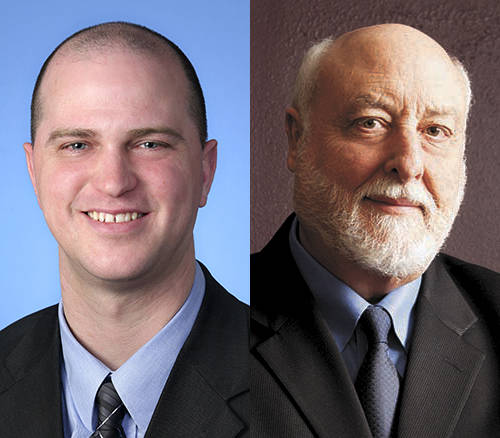By Tim Holmes, MultiCare, and David M. Johnson, Navos
As the shock of celebrity suicide deaths such as Kate Spade and Anthony Bourdain fade, we naturally turn our attention to other stories, other crises in the world around us. Even if it’s not in the headlines every day, the growing suicide rate here and around the world remains a silent crisis, in part because it’s a topic no one wants to talk about.
But unlike so many things, talking about suicide and mental illness in general is one key to solving it.
Here in Washington state, the CDC reports that suicide rates rose by 18.8 percent between 1999 and 2016. Suicide is the 10th leading cause of death in the nation and the eighth leading cause of death in our state. It is the number-two killer of people 15-34 years old in Washington, claiming more than 1,100 lives each year.
And yet we don’t talk about suicide or mental illness – even though 46 percent of those who die from suicide have a previously diagnosed mental health issue.
The CDC reports that half of the adults in the United States will be diagnosed with some form of mental illness or disorder in their lifetime. In any given year, one in five adults will be diagnosed with some form of mental illness. It is difficult to imagine any other group of conditions so prevalent and still so stigmatized, yet the stigma persists and contributes to far too many people suffering for far too long without seeking help.
Although the vast majority of people with mental illness will never die by suicide, reducing barriers to behavioral health resources will almost certainly save lives.
As individuals, we can help prevent suicide by having uncomfortable discussions. If you know someone you think may be at risk, don’t avoid the topic. Ask them. Too often we skirt the subject out of fear that we will embarrass someone, or worse, give them an idea they hadn’t considered. But studies show that asking someone at risk for suicide if they are considering it doesn’t raise the chance they will make an attempt. In fact, most research indicates that talking about suicide with someone at risk actually reduces their risk.
Once you’ve initiated the conversation, keep them safe. If they have access to firearms and acknowledge suicidal thoughts, you may need to take them to the hospital or call the authorities. Or perhaps you just need to keep them talking long enough to form a plan to get help.
Help them connect with mental health resources in the community. Don’t fall prey to the idea that there simply aren’t resources available. They are there, but a person in crisis probably needs your help to locate them.
As health care providers, we can help by recognizing that physical and mental health are inextricably intertwined and that it is up to us to prevent gaps in the safety net. We need to make behavioral health services as easy to find and access as your primary care doctor.
To that end, MultiCare affiliated last year with Seattle-based Navos, one of the state’s largest non-profit mental health providers, and this spring affiliated with Lakewood-based Greater Lakes Mental Healthcare. Navos itself announced plans to merge with Community Psychiatric Clinic this year. By integrating mental health and social services with existing health care facilities, more people will be able to access desperately needed help.
Like any other medical condition, mental illness is treatable and often curable. And if we want to stop the epidemic of suicide, we have to end the stigma that stops too many people from seeking treatment. Help is out there.
Resources, contact: Crisis Clinic of King County: 866-427-4747; The National Suicide Prevention Lifeline: 800-273-8255; and Crisis Text Line: 741741
Tim Holmes is president of behavioral health for MultiCare, a not-for-profit, community-based and locally governed health system with roots dating back to Tacoma’s first hospital. David M. Johnson is CEO of Navos, a non-profit community mental health provider that affiliated with MultiCare last year.
Talk to us
Please share your story tips by emailing editor@kentreporter.com.
To share your opinion for publication, submit a letter through our website https://www.kentreporter.com/submit-letter/. Include your name, address and daytime phone number. (We’ll only publish your name and hometown.) Please keep letters to 300 words or less.

